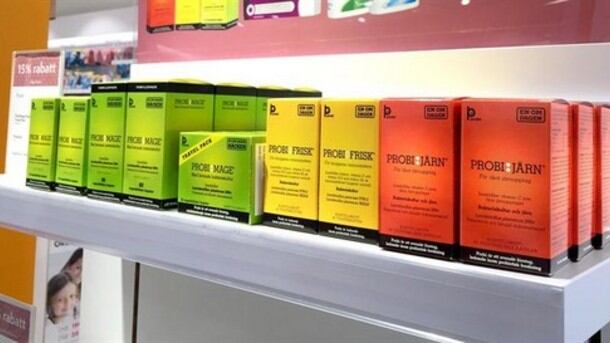Swedish supplier Probi’s article 13.5 health claim stated: “Lactobacillus Plantarum 299V increases non-heme iron absorption."
Yet in its conclusion published this week, EFSA said evidence for the effect was “inconsistent” and “at risk of systematic bias” and said there was “no evidence” for a plausible mechanism in vivo in humans.
Probi CEO Peter Nählstedt said the company had been “disappointed and surprised” by the rejection of its six-trial dossier it saw as comprehensive.
“I think this is the most studies ever submitted for a probiotics health claim,” he told us.
The company was already looking at routes for resubmission, which would be done within the year.
“We won’t take this as the final outcome. We spent too much time, too much money.”
Probi invests more than 30% of its turnover in R&D – and more than half of that goes into research for health claims for iron and beyond.
Mission impossible?

Yet if EFSA rejects the claim again, this could mark the company’s last attempt at getting a health claim.
“Should this conclusion persist – the conclusion would have to be that it can’t be possible to get a health claim for probiotics.”
The figures speak for themselves.
He said this rejection marked the 310th probiotic health claim application rebuffed by EFSA so far.
Indeed this isn’t Probi’s first experience of rejection.
In 2010 EFSA rejected its health claim application for a probiotic strain and a decrease in potentially harmful pathogens in the gut.
There are currently no approved claims for probiotics in the EU – and the term ‘probiotic’ itself is considered an unauthorised health claim and therefore forbidden on pack.
Nählstedt said this was down to the assurances required by EFSA, which went beyond authorities in other regions where the “totality” of evidence was considered.
“We think the reason is that the panel wants proof beyond any doubt, not proof beyond reasonable doubt.”
Prove it
For its iron claim it submitted six studies: one did not show an effect, one showed a minimal change and four showed significant results.
However EFSA’s Dietetic Products, Nutrition and Allergies (NDA) panel concluded: “In weighing the evidence, the Panel took into account that the results of two double-blind, placebo-controlled, cross-over studies are inconsistent, as one study with some methodological limitations showed a positive effect of Lp299v on non-haem absorption, whereas the other did not show an effect.
“The Panel noted that among four single-blind, placebo-controlled, sequential studies at risk of systematic bias, three studies showed a positive effect of Lp299v on non-haem absorption and one did not show an effect.
“The Panel also took into account that there is no evidence for a plausible mechanism by which Lp299v could increase non-haem iron absorption in vivo in humans.”
'It would be unethical'
Nählstedt said accusations of bias and methodological flaws did not take into account particularities of probiotic research.
To give the same participant both the placebo and probiotic treatment is difficult given the gut is colonised by the probiotic and therefore impacts any subsequent tests.
Overcoming this would require a very large sample – which is expensive but also potentially unethical given the use of isotope technology, which exposes participants to radioactive material.

“It wouldn’t be ethical to expose a large amount of people to radioactive material,” Nählstedt said.
Pharma-food crossroad
Talking previously about this health claim, Probi director of consumer healthcare marketing and sales Linda Neckmar told us if the claim was rejected the firm would “intensify medical marketing” and focus on exporting to the US and Asia.
Nählstedt said this remained a viable option and indeed the company made medical moves recently with its largest distribution agreement to date in an 18-country deal with French pharmaceutical firm Ipsen.
However other food grade deals, for example with the brand Bringwell, would not be impacted by the rejection because the products could continue to legally make claims based on the iron content.
Yet he said it was “wrong” that information about the probiotic’s potential role was being withheld from consumers.
“It would have been better and clearer for consumers.”
Probi's ingredient FerroSorb is a combination of lactic acid bacteria LP299V, vitamin C, folic acid and a “carefully balanced amount” of iron.
The company says the probiotic helps boost absorption of iron, meaning less iron itself would need to be taken. This could help avoid side effects of high iron doses like abdominal pain, constipation or diarrhoea, heartburn, nausea and black faeces.
